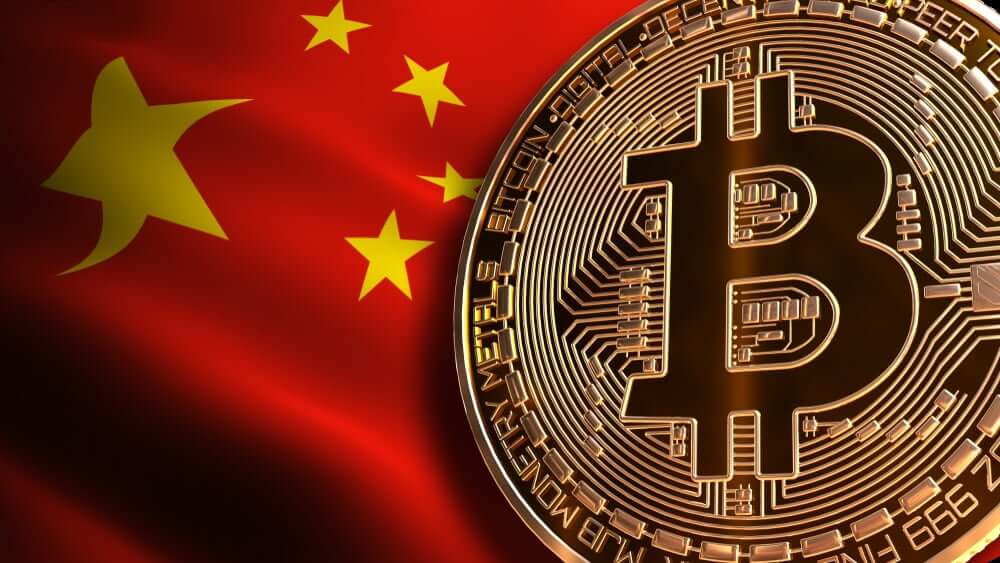China Could Embrace Bitcoin Reserves, Says Former Binance CEO CZ
10.12.2024 8:30 2 min. read Kosta Gushterov
At the Bitcoin MENA conference in Abu Dhabi on Dec. 9, former Binance CEO Changpeng “CZ” Zhao shared his thoughts on the possibility of China adopting a strategic Bitcoin reserve.
He suggested smaller nations might take the lead in this move, but larger economies like China could follow, albeit at a slower pace. Zhao acknowledged the unpredictability of China’s crypto stance due to the opaque nature of its government policies.
Zhao, who grew up in China, emphasized the country’s capacity to implement rapid policy changes when necessary. While he noted no clear evidence that China has been stockpiling Bitcoin, he deemed it “inevitable” that they would create a Bitcoin reserve. According to Zhao, such a move aligns with the appeal of Bitcoin as a “hard asset.” He speculated that if China were to act, it might quietly accumulate Bitcoin before making any public announcements.
The idea of a national Bitcoin reserve has gained traction, particularly in the United States, where President-elect Donald Trump included it in his campaign promises. Critics argue this plan could primarily benefit current Bitcoin holders by driving up its price if the government were to acquire a significant supply of the cryptocurrency.
Zhao also hinted at his own future prospects, mentioning the possibility of a presidential pardon from Trump once he takes office in January. This follows Zhao’s release from U.S. federal prison in September after serving a four-month sentence for violating Anti-Money Laundering laws. As part of his agreement upon stepping down as Binance CEO in November 2023, Zhao is barred from participating in the exchange’s management or operations.
-
1
Bitcoin Reaches New All-Time High Above $116,000
11.07.2025 7:56 1 min. read -
2
What’s The Real Reason Behind Bitcoin’s Surge? Analyst Company Explains
12.07.2025 12:00 2 min. read -
3
Canadian Bank Sees Bitcoin Hitting $155,000 by 2025
15.07.2025 10:00 1 min. read -
4
Peter Schiff Warns of Dollar Collapse, Questions Bitcoin Scarcity Model
12.07.2025 20:00 1 min. read -
5
Strategy Claims It Can Weather a Bitcoin Crash to $20K Without Trouble
16.07.2025 14:08 1 min. read
Bitcoin Risk Cycle Flips Again as Market Enters Safer Zone
Bitcoin’s market signal has officially shifted back into a low-risk phase, according to a new chart shared by Bitcoin Vector in collaboration with Glassnode and Swissblock.
Robert Kiyosaki Warns of 1929-Style Crash, Urges Bitcoin Hedge
Financial author Robert Kiyosaki is once again sounding the alarm on America’s economic health.
Metaplanet Adds $92.5M in Bitcoin, Surpasses 17,000 BTC Holdings
Metaplanet Inc., a Tokyo-listed company, has just added 780 more Bitcoin to its treasury. The purchase, announced on July 28, cost around ¥13.666 billion or $92.5 million, with an average price of $118,622 per BTC.
China and U.S. Plan Trade Truce Extension Before Talks: How It Can Affect Bitcoin
The United States and China are expected to extend their trade truce by 90 days. The extension would delay new tariffs and create space for fresh negotiations in Stockholm.
-
1
Bitcoin Reaches New All-Time High Above $116,000
11.07.2025 7:56 1 min. read -
2
What’s The Real Reason Behind Bitcoin’s Surge? Analyst Company Explains
12.07.2025 12:00 2 min. read -
3
Canadian Bank Sees Bitcoin Hitting $155,000 by 2025
15.07.2025 10:00 1 min. read -
4
Peter Schiff Warns of Dollar Collapse, Questions Bitcoin Scarcity Model
12.07.2025 20:00 1 min. read -
5
Strategy Claims It Can Weather a Bitcoin Crash to $20K Without Trouble
16.07.2025 14:08 1 min. read


